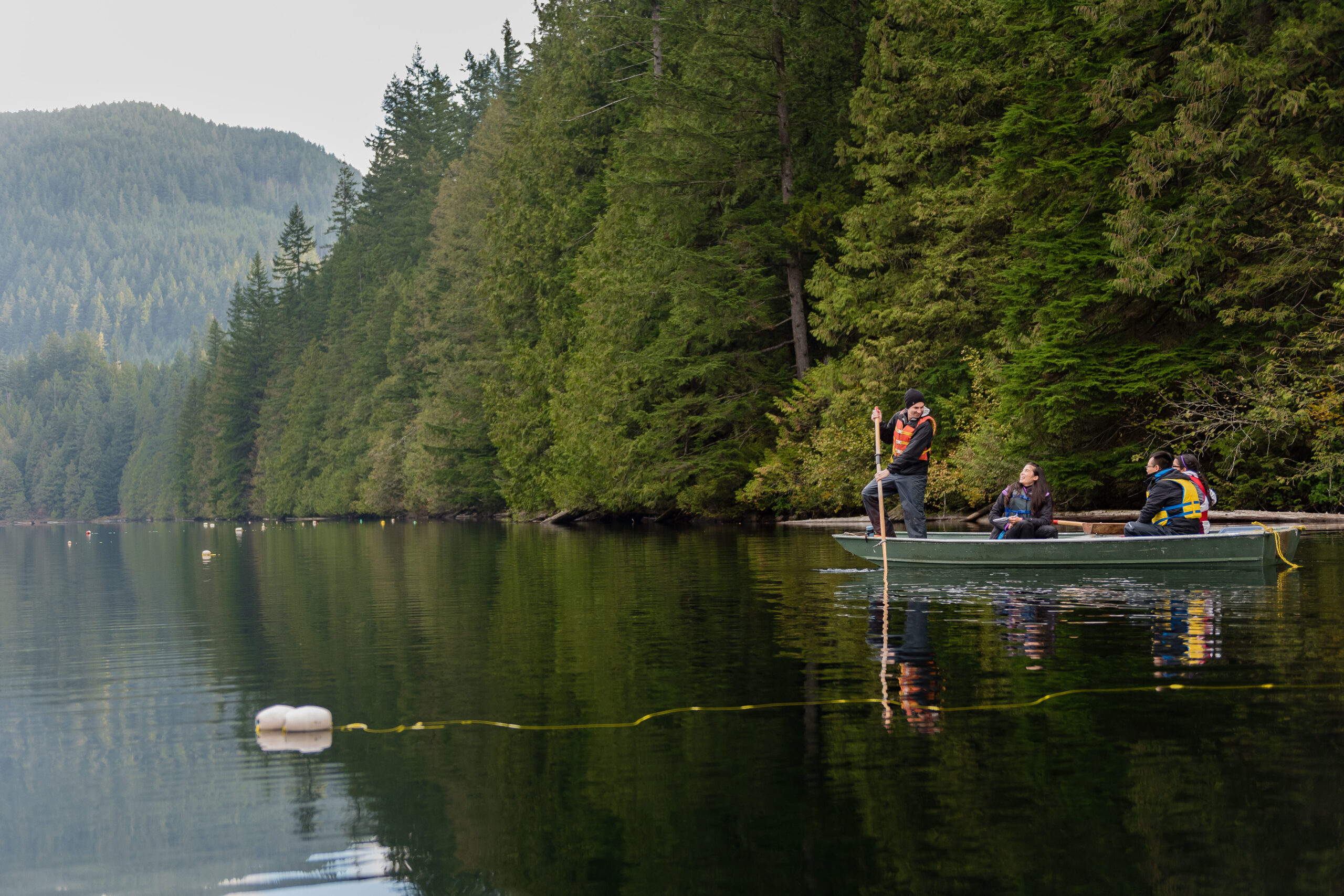
Do you want to help fight climate change, protect the environment, and shape our future and planet?
Do you want to be involved in the design and development of renewable materials, energy, and sustainable land-use strategies or do you seek the challenge of applying technology and science to create environmentally and economically sound harvesting plans? Perhaps you want to play an active role in protecting and managing our natural environment, including wildlife, forests, rivers, oceans, and land?
UBC’s new Bachelor of Science in Natural Resources degree, offered within the Faculty of Forestry, focuses on the science, management, and conservation of natural resources.
What you learn in Natural Resources
There are six majors to choose from within the Bachelor of Science in Natural Resources, each offering immersive learning experiences like field schools, lab work, and co-op opportunities. Within each of these unique fields, students gain practical knowledge and skills that are critical for solving today’s natural resource challenges.
Majors are selected at the completion of Year 1. Note that some majors have unique pre-requisites that need to be taken in Year 1, so contact an advisor to learn more before selecting your courses.
Bioeconomy Sciences and Technology
UBC’s Bioeconomy Sciences and Technology program is the first in Canada to provide a multidisciplinary and comprehensive education that’s focused on the scientific, economic, and policy issues related to the growing bioeconomy and creating a sustainable future. As a student in this program, you’ll gain a solid foundation for the innovative design and development of renewable materials, energy, and sustainable land-use strategies.
As a Bioeconomy Sciences and Technology graduate, you will be familiar with key facets of the bioeconomy and possess the skills required to work in energy, design and develop renewable materials, and establish leading land-use strategies.
This interdisciplinary program is the most popular program in UBC’s Faculty of Forestry. You’ll learn how to play an active role in protecting and managing our natural environment, including wildlife, forests, rivers, oceans, and land. As a Conservation student, you’ll take courses in English, math, and science – plus conservation, wildlife, fisheries management, computer applications, remote sensing, and soil science.
As a Conservation graduate, you’ll use your skills and knowledge to help protect and preserve the planet with a career in environmental sustainability and resource management at a government, non-profit, private consulting, education, or law organization.
If you love the outdoors and are excited by the challenge of planning and managing our forest lands, then Forest Management program may be for you. As a student in the Forest Management program, you’ll explore the scientific foundations that underpin the management of forest resources, while tailoring your educational journey with elective courses that emphasize biological, economic, social, or quantitative dimensions within this diverse field.
Forest Management graduates are well-prepared for diverse roles in consulting, sustainable forestry, and natural resource management.
In the Forest Operations program, students learn how to apply technology and science to create environmentally and economically sound harvesting plans. This program emphasizes the integration of biological, physical, and social sciences, supplemented by advanced courses in geotechnical engineering, forest road design, slope stability analysis, and efficient harvesting system evaluation.
Forest Operations graduates embark on a world of diverse and evolving career opportunities within the forest industry. With additional courses, graduates can also work towards becoming a Professional Engineer (P.Eng), opening doors to a wide range of career opportunities in forestry and related fields.
In the Forest Sciences program, you’ll study scientific principles related to forests, forest organisms, and plant and animal ecology. You’ll also learn how to ask and approach important questions like: How do plants and animals in forest ecosystems react to insects and disease, climate change, pollution, harvesting, and recreational use? How can we sustain the biological diversity of our forests while meeting our resource needs?
As a Forest Sciences graduate, you can pursue a career as a forest geneticist, a biodiversity specialist, a fisheries and wildlife officer, a forest ecologist, a pathologist, or an entomologist.
Wood Products is an award-winning program that fuses science, engineering, and business. Students in the program gain a comprehensive understanding of wood science, business, and advanced manufacturing operations, while developing transferable skills in problem solving, communication, leadership, and teamwork.
Graduates of the program can pursue a career in material science, engineering, computer science, material processing, wood finishing, product design, quality control, or sales and marketing – or go on to graduate studies in wood science, finance and business, building construction technology, or medicine.
Why choose Natural Resources?
The Bachelor of Science in Natural Resources degree is offered on UBC’s Vancouver campus and has access to two research forests totalling 60,000 acres where students can enhance their classroom learning with field studies. In addition to field studies, the program also emphasizes experiential learning with lab work and co-op opportunities.
Natural Resources is also a small, supportive learning community. It has smaller class sizes, allowing you to make close friendships with fellow students and have closer connections with professors, including personalized mentoring, support, and guidance.